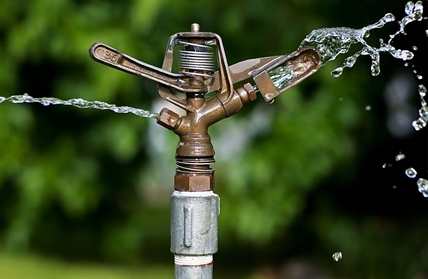Elevate your local knowledge
Sign up for the iNFOnews newsletter today!

KELOWNA – As the province deals with the one of the most widespread droughts on record, municipalities and other water providers are increasingly looking for ways to alter consumption patterns amongst their users.
While staged watering restrictions can force short term changes in use, the gold standard for long term change is the water meter, according to Kevin Van Vliet, utility service manager for the City of Kelowna.
“It’s been proven North America-wide, if you want to change consumption patterns, put in meters. It’s a huge motivator for consumers, it motivates them more than any regulation,” Van Vliet says.
The City of Kelowna first installed water meters in 1998 and began block metered billing soon afterward, where users are charged a higher rate the more water they use.
Residential customers are currently charged a flat rate per single family household water meter plus $0.412 per cubic metre for the first 60 cubic metres rising to $1.681 for anything over 270 cubic metres of water. Those rates will rise again next May.
Strata developments, commercial and industrial properties and agricultural operations all have their own schedule of consumption fees.
All this has helped Kelowna residential water consumption drop by 20 per cent since 2003, Van Vliet says, and allowed the city-owned utility more latitude when facing drought conditions. In addition, the city recommends residents visit makewaterwork.ca for information on addtional household conservation methods.
The installation of the water meters at the time was the source of similar controversy as that faced by utilities installing meters today, but Van Vliet doesn’t think there will be the same angst when the city begins replacing the aging meters in three to five years.
“People understand their value now, so I don’t think there will be much opposition,” he says.
Kelowna’s water utility services 60,000 connections from its source Okanagan Lake through four lake intakes and a series of pump stations and reservoirs.
The rest of Kelowna is serviced by one of four service providers including Glenmore Ellison Improvement District, Black Mountain Irrigation District, South East Kelowna Irrigation District and the Rutland Waterworks. Of the four, only Rutland is fully metered.
To contact the reporter for this story, email John McDonald at jmcdonald@infonews.ca or call 250-808-0143. To contact the editor, email mjones@infonews.ca or call 250-718-2724.
Want to share your thoughts, add context, or connect with others in your community?
You must be logged in to post a comment.